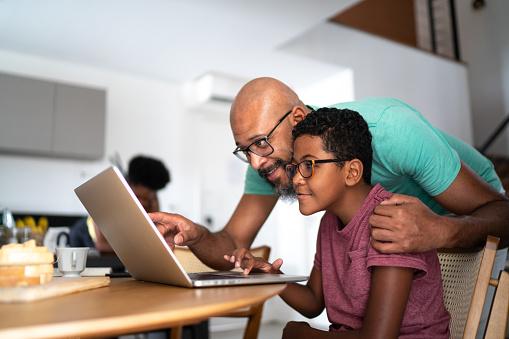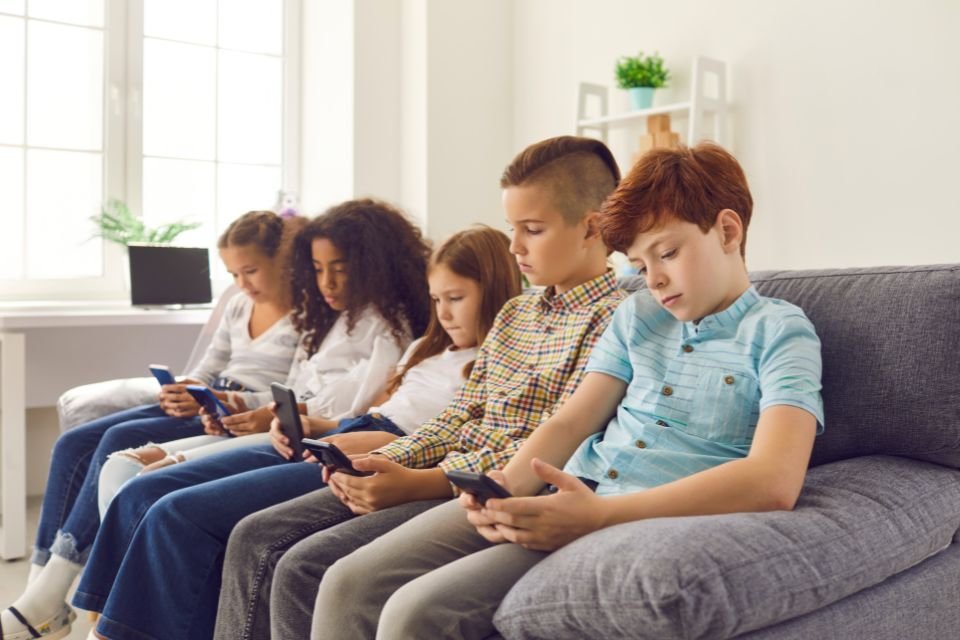First contact with the internet is occurring increasingly earlier in the lives of Brazilian children. What makes children’s digital exhibition a pressing issue? not just for parents, but also for family members, educators, legislators, and, let’s not forget, big tech like Google and Meta.
According to the TIC Kids Online Brazil 2023 survey, approximately 24% of participants reported that they started their online journey in early childhood, that is, by the age of six. This represents a significant increase since the 2015 survey, when the rate was 11%.
Instagram was the most used platform by users aged 9-17. 36% of the children and adolescents interviewed were reached. Following closely behind are other popular social networks in the country such as YouTube (29%), TikTok (27%) and Facebook (2%).
Unrestricted access to content available on the Internet and children’s exposure to social networks contribute to factors that appear to determine the direction in which our society may become ill in the coming years. We’ll explain more below!
How does social media affect children?
Children’s influence on social media May have significant impacts on the development and safety of young children. There is no way to avoid this responsibility, although it often occurs accidentally on the part of parents, even without their knowledge.
Awareness is the first step for both adults and little ones. See what harm social networks do to children.
Restricting the right to privacy
According to the Child and Adolescent Regulations (ECA), exaggerated exposure constitutes a threat to the child’s privacy, private life and right to image.
Continuous sharing of moments from the child’s life can create a Digital narrative that lasts for yearsit shapes their perception of privacy and exposes them to uncomfortable situations now and even in the future.
An example of this is in 2015, when a video of two teenagers fighting while leaving school went viral, with the words “Is it over, Jéssica?” said at the end of the video. It is the situation of Lara and Jéssica that became a meme after the statement. The confusion became a national laughing stock.
The consequences of this incident continue today for the girls who were the targets of bullying. left school and He sought psychiatric treatment to try to cope with the pain provoked.
In an interview with BBC News Brasil, Lara says: “It hurts if I stop to think too much about it. It’s not something I like, but it’s something that’s happened, there’s no going back.”
Today, the duo will take legal action against Google and Facebook to delete the video, and against publishers SBT, Record and Band, who spread the case without the permission of those responsible.
Encourage seeking external validation
The pressure for acceptance and approval that is so prevalent on social media can affect children’s emotional health, leading to self-confidence and self-image issues.
Over-reliance on positive feedback through the amount of “likes” and comments on social media can lead to feelings of inadequacy in the absence of a positive response.
This is how they wake up. Insecurities and concerns about physical appearance, An approach that moves away from aesthetic standards as they are unrealistic even for adults and they can better analyze this scenario in a mature way.
Affects the child’s physical and mental health
Excessive information sharing can make it easier for online attackers to use publicly available data to find their victims. Also, as we mentioned before, Exposure to digital media can make children targets of cyberbullying and affect their psychological health.
According to Evelyn Eisenstein, coordinator of the Digital Health Group of the Brazilian Pediatric Society (SBP), the long-term effects of children’s exposure to digital media should be approached with caution.

“Children and young people should not have a public life on social media. We do not know who is on the other side of the screen. Content shared publicly without security and privacy criteria can be distorted and falsified by traffickers in terrorist crimes. For example, violence and abuse in international pedophilia or pornography networks,” he said. explains Eisenstein.
Damaging children’s cognitive development
Spending hours surfing the Internet is a habit that jeopardizes a child’s intellectual development, creativity and logical reasoning ability.
As a reflection little ones feel more difficulty focusing on tasks This will encourage your knowledge and memorization process, like reading a book.
Greater exposure to commercial persuasion
Nearly 50% of users aged 11-17 have asked their father, mother or guardian to purchase a product after being exposed to advertising or commercials online.
An alarming finding of the TIC Kids Online Brasil 2023 study; especially when it is confirmed that 72% of those responsible for children and adolescents aged 9 to 17 do not use filters to prevent such content from reaching minors without supervision.
Ads delivered by digital influencers have the power to evoke Desires and behaviors that do not fit the age group of the viewersThis even harms the formation of the people’s own identity.
“Although children and young people accept that people are paid to talk about products, they do not always realize that they are dealing with marketing communications when they see videos online of people using or opening product packaging,” says Luísa Adib, coordinator of Search.

What are the dangers that children face on the internet?
The Internet offers children a wide world full of educational and entertainment opportunities, but as we mentioned in the previous topic, it also brings with it many dangers.
In summary, The most common dangers associated with children’s exposure to digital media include:According to the Ministry of Human Rights and Citizenship:
- sexual exploitation and abuse of children and adolescents on the Internet;
- cyber bullying and cyber harassment;
- Consumption of violent, sexual or hateful content;
- digital manipulation of images using deepfake techniques;
- exchanging sexually explicit images or videos that may lead to unauthorized dissemination of content;
- Collection of personal information by companies and advertisers to target certain advertisements to children without parental consent.
For this reason, it is important that the concept of “sharing”, which gives its name to the practice of sharing information about children on social networks, should be deeply thought through:
How do you balance your legitimate desire to share precious moments of family life with the responsibility to protect your children’s privacy and security online?
“The child’s life does not belong to the parents,” said physician Roberto Santoro, coordinator of the SBP Mental Health Working Group. They promote the development of children and young people and they must ensure that this development occurs in a consistent and balanced manner towards adulthood, when the person can fully realize himself according to his potential.”
What should not be shared digitally for the safety of children?
It’s important to set clear limits on online sharing, talk openly about risks to children and teach them to protect their privacy.
To keep little ones safe in the digital age, parents should be careful about what they share online. avoid publishing photos and videos that may reveal personal informationdetailed daily routines and intimate moments from the child’s life.
It is equally important that the content does not allow the location of the child to be determined, such as the t-shirt of the school where the child is studying, or does not reveal situations that may pose a risk, such as semi-nude images.
Education experts also recommend that not only should parents be concerned about what they share on social media, but children should also be monitored to respect their healthy amount of screen time.
Remember this in the following cases: Practices and privacy settings on social media platforms are critical for controlling who has access to shared information and protecting children’s privacy and emotional health.
It is a responsibility that is on the agenda of governments, which must regulate the Internet, and of large technology companies that create social networks, which must provide the necessary tools to make the digital environment less toxic for their users, regardless of their age group.
Did you like the content? So stay informed about the articles published daily on TecMundo. Take the opportunity to follow us on Instagram!
Source: Tec Mundo
I am a passionate and hardworking journalist with an eye for detail. I specialize in the field of news reporting, and have been writing for Gadget Onus, a renowned online news site, since 2019. As the author of their Hot News section, I’m proud to be at the forefront of today’s headlines and current affairs.










